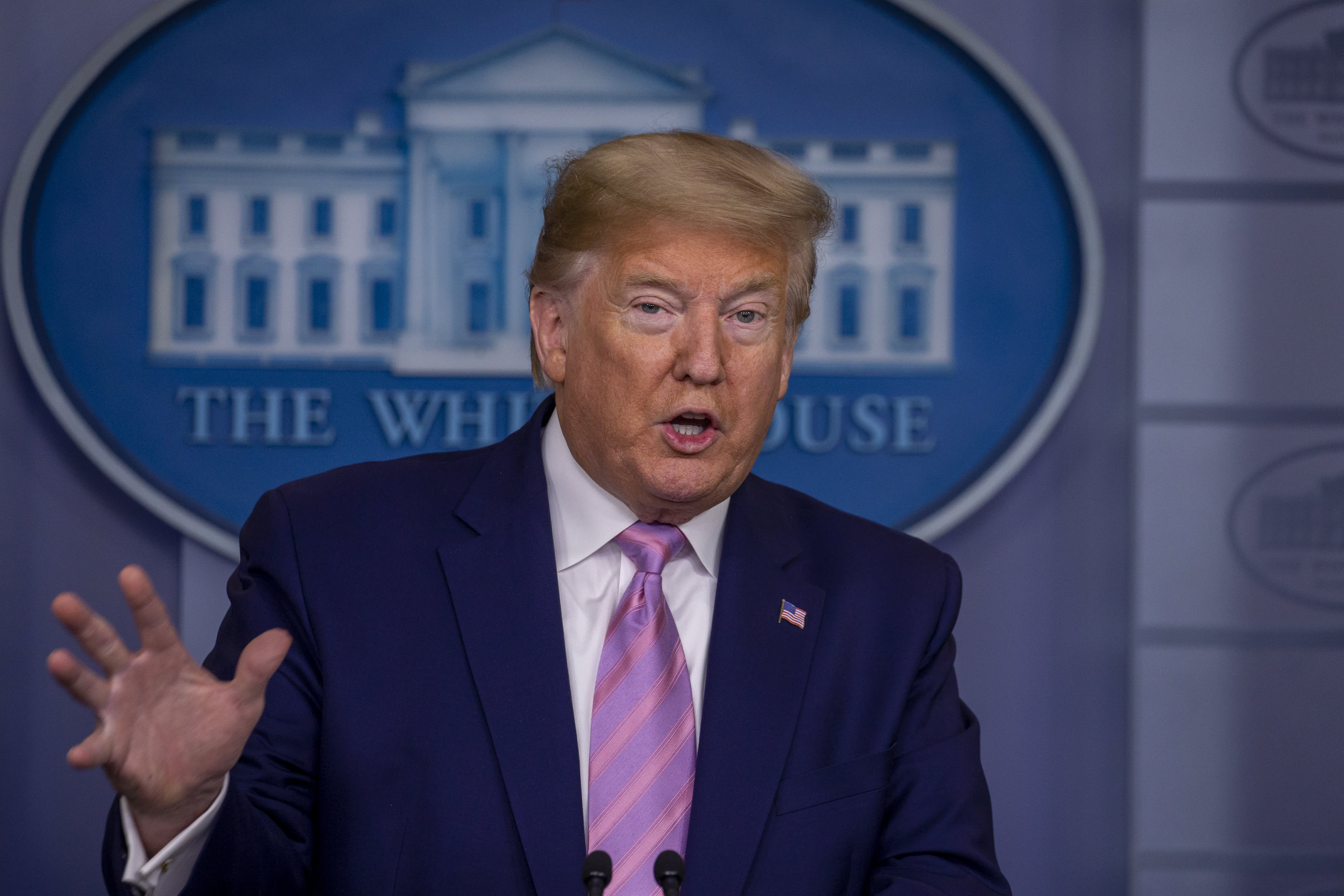President Donald Trump has called the coronavirus pandemic a war against an invisible enemy.
And to fight it the government is drawing on the Defense Production Act, which has given presidents extraordinary powers during times of war.
As of late April, the federal government has invoked the DPA to compel companies to make and direct medical supplies to health-care workers, crack down on the hoarding and export of needed materials, and even keep meatpacking plants open.
Calls to use the DPA have been bipartisan. Some politicians, public health professionals, and others have urged the president to lean on the act to created a vaccine for the virus, and appoint military personnel to coordinate health-care efforts.
Trump's moves so far have not pleased everyone. Critics have said he has moved too slowly and used the DPA improperly or ineffectively.
"The president says it's a war," said New York Gov. Andrew Cuomo, a Democrat, during a news conference in late March. "Well then act like it's a war."
Trump initially said he had reservations about using the law, which he likened to nationalizing industries. He later defended some of his executive orders by saying he needed to protect supplies of medical and protective equipment and food. Responding to other criticism, the president said he has appointed military personnel to coordinate efforts.


